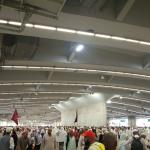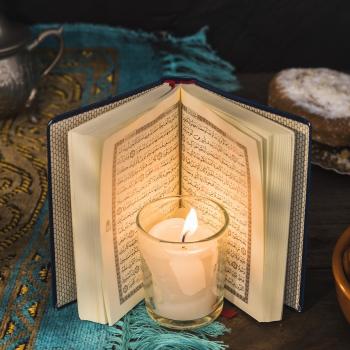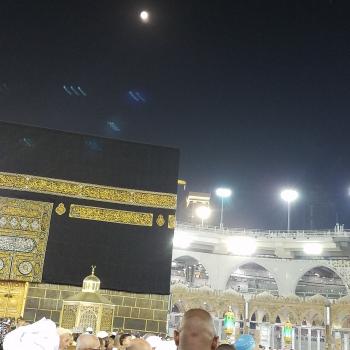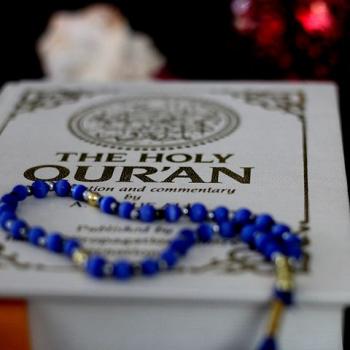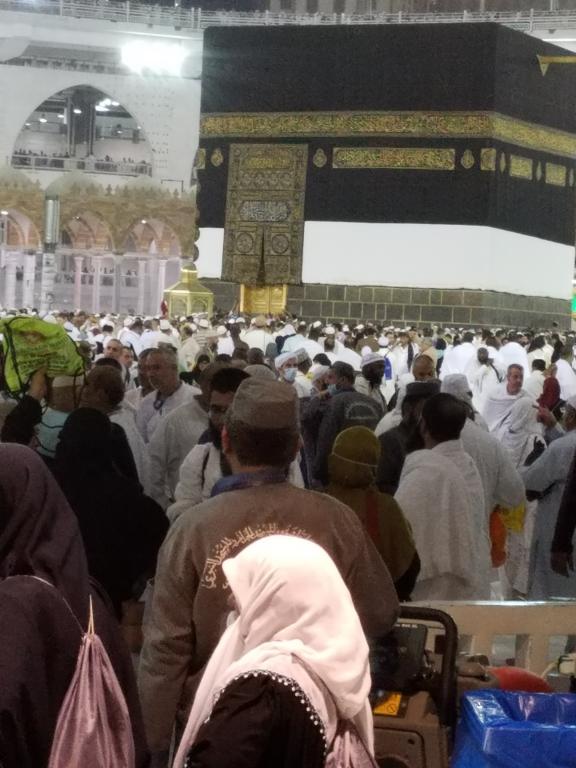 In the past 10 days I had shared several rituals of the Hajj pilgrimage. But it is now time for some reflection: what are the take home messages? What lessons did we learn and how do we apply them when we come back home?
In the past 10 days I had shared several rituals of the Hajj pilgrimage. But it is now time for some reflection: what are the take home messages? What lessons did we learn and how do we apply them when we come back home?
These were some of the questions I raised at our last group meeting on the eve of our departure from Mecca.
But let me finish the series on the rituals first. After the three days of Ramee, or stoning the Devil, we returned to our hotel in Mecca, where we needed to perform one more Umrah. This set involved putting the Ihram on again for one last time, perform the tawaf and Saee (walking between the hills of Safa and Marwa), a second set of tawaf and the final two rak’at Salat. After the Salat, our Hajj was complete. We stayed for few more days in Mecca for visiting other holy sites, such as the Cave of Hira (where the first verses of the Qur’an were revealed to prophet Muhammad), Cave of Thur (where Prophet Muhammad and his companion and first Caliph, Abu Bak’r took refuge when the Meccans followed them after they had escaped, on the way to their emigration to Medina) and an ancient cemetery where Prophet Muhammad’s parents, grand parents, his first wife Khadijah and his uncle and protector in chief, Abu Taleb are buried.
To recap, we started our journey in Medina, while paying homage to Prophet Muhammad at his gravesite in the Mosque of the Prophet and praying at Riaz ul Jannah, and doing our Umrah in Mecca, circling around Ka’aba, and performed Saee to honor Hagar finding water for her infant son, Ishmael. The 5 days of Hajj in the tent cities started in Arafat, then Muzdalifah and Mina for the Ramee ending in the sacrifice of the animals on Eid, and finally returned to Mecca one last time to perform the farewell Umrah.
Like I mentioned on a prior post, Arafah means to gain a deep understanding (Ma`rifah)- cognition of the beginning (of creation), God’s mercy, and the end of all creation; cognition of Prophet Muhammad and the meaning of his message. Muzdalifah’s other name is Mashar al Haram. Mashar is derived from Shaoor, meaning consciousness or awareness. This was followed by stoning the Devil and sacrificing an animal to commemorate Abraham’s (intended) sacrifice of Ishmael at the command of God.
Thus the rituals at Arafat, Mashar al Haram and Mina draw our attention to be cognizant of God, to be aware of His immense bounties and to submit to His will like Abraham did. As we all know, Abraham did not have his first son until old age. You can imagine how much he loved him when he finally had a son. As he drew deeper in love for his son, God reminded him that the love for God needs to be put above and beyond everything else. So he tested Abraham with what he loved the most- his own son.
Thinking beyond the ritualistic sacrifice of the lamb, we must ask what/who is our Ishmael today that we put above God? To be clear, I am not asking us to think about sacrificing our children. That simply would be crazy. But we have to ask what is/are the barrier/s between us and remembering and submitting to God. Is it our job, our wealth or our ego? Slaughtering the sacrificial animal would not mean much if we don’t think beyond the most superficial meaning. And drawing the experience of Arafat, are we cognizant, and do we have the shaoor (awareness) of what is coming between us and the love for, and service to, God? Have we put God on the back burner because “we are so busy and have important things to do”?
Muslims are celebrating the Eid Al Adha around the world currently. But that celebration would be shallow if we did not gain an awareness of the Ishmael in our own lives. It would not mean much if we did not sacrifice our egos and did not put our love of God above and beyond everything else. And that love has to translate into action. Otherwise it would be just lip service. I totally understand it is easier said than done. But we have to contemplate nonetheless.
Throughout the Hajj pilgrimage, we had meetings led by our Imam practically every day to go over the religious lessons, the rituals and what’s to come the next day. On the last session of the trip, I asked every one to reflect on what we had just experienced. What did it mean to us? What are the take-home lessons? How did it change us, if at all? I also asked a specific question at the end: what one thing we would do differently when we got back home as a result of our pilgrimage, which we unanimously felt was the most incredible experience of our lives.
The responses varied from being more God conscious, to helping others, be more engaged with the community, be more humble, more kind, and to strive to be a better human being. We all felt incredible, and wanted to maintain that feeling, realizing the memories will fade when we will get back into the rat race- the daily grind.
My own response at the time was that I would work on listening more patiently since I have a habit of speaking (or writing) rather than listening to what others have to say. However as I reflected more on the journey, I decided that the best way to maintain the great feelings and to keep the memories alive was to shave my head, that would serve as a constant reminder of the day I shaved my head in Mina, near the make shift bath rooms, next to a sink in the open air. It remains a constant reminder of the entire spiritual journey.
From a communal perspective, we also saw first hand what it means to be with people from all walks of life, cultural background, socio-economic status, color of skin, language, national and ethnic background- all coming together to submit themselves humbly to God wearing just two pieces of unstitched cloth. We were equal in God’s sight and that’s all what mattered. It was a constant reminder that we are one big family regardless of our differences. Wearing white pieces of cloth (Ihram), while denoting simplicity, humility and unity, was like putting on the simple shroud that Muslims are covered with for burial- a not-so-subtle reminder of our eventual return to God and our responsibilities on this earth.
Over 20 years ago, Michael Wolfe, co-founder of Unity Productions and a good friend of mine, shared his incredible journey with Ted Koppel on ABC’s Friday Night special. Recently, on the anniversary of his Hajj, Michael shared the video footage of ABC News via an email. Michael did a marvelous job of putting a human face(actually faces) to his pilgrimage experience. Here is the the entire news footage, minus the commercials!
The image of my last look at Ka’aba is still fresh in mind. It was quite frankly not a joyous moment. I felt very sad- like I do when a loved one is leaving us or when I am leaving my loved ones after a good time together. I wished to one day return to the same place, and continue to pray to have the honor and privilege of performing the pilgrimage one more time, InshaAllah (God willing).

